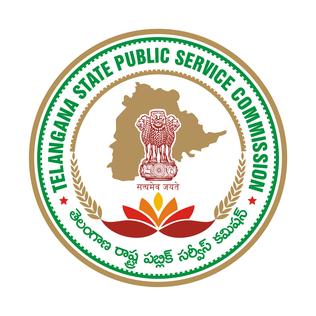
In the United Kingdom, the Civil Service is the permanent bureaucracy or secretariat of Crown employees that supports His Majesty's Government, the Scottish Government and the Welsh Government, which is led by a cabinet of ministers chosen by the Prime Minister of the United Kingdom of Great Britain and Northern Ireland.

The civil service is a collective term for a sector of government composed mainly of career civil service personnel hired rather than elected, whose institutional tenure typically survives transitions of political leadership. A civil service official, also known as a public servant or public employee, is a person employed in the public sector by a government department or agency for public sector undertakings. Civil servants work for central and state governments, and answer to the government, not a political party.
The clerk of the Privy Council is the professional head of the Public Service of Canada. As the deputy minister for the Privy Council Office, the clerk is the senior civil servant in the Government of Canada and serves as the secretary to the Cabinet.
The Federal Public Sector Labour Relations and Employment Board is an independent quasi-judicial tribunal that administers the collective bargaining and "grievance adjudication systems" in Canada's federal public service and in Parliament.

The United States Office of Special Counsel (OSC) is a permanent independent federal investigative and prosecutorial agency whose basic legislative authority comes from four federal statutes: the Civil Service Reform Act, the Whistleblower Protection Act, the Hatch Act, and the Uniformed Services Employment and Reemployment Rights Act (USERRA). OSC's primary mission is the safeguarding of the merit system in federal employment by protecting employees and applicants from prohibited personnel practices (PPPs), especially reprisal for "whistleblowing." The agency also operates a secure channel for federal whistleblower disclosures of violations of law, rule, or regulation; gross mismanagement; gross waste of funds; abuse of authority; and substantial and specific danger to public health and safety. In addition, OSC issues advice on the Hatch Act and enforces its restrictions on partisan political activity by government employees. Finally, OSC protects the civilian employment and reemployment rights of military service members under USERRA. OSC has around 140 staff, and the Special Counsel is an ex officio member of Council of Inspectors General on Integrity and Efficiency (CIGIE), an association of inspectors general charged with the regulation of good governance within the federal government.
A civil service commission is a government agency or public body that is established by the constitution, or by the legislature, to regulate the employment and working conditions of civil servants, oversee hiring and promotions, and promote the values of the public service. Its role is roughly analogous to that of the human resources department in corporations. Civil service commissions are often independent from elected politicians, maintaining the separation of the permanent, professional civil service from government ministers.
The Civil service of Ireland is the collective term for the permanent staff of the departments of state and certain state agencies who advise and work for the Government of Ireland. It consists of two broad components, the Civil service of the Government and the Civil service of the State. Whilst the differences between these two components are largely theoretical, some fundamental operational distinctions exist.
The civil service in Malaysia is pivotal around Article 132 of the Constitution of Malaysia which stipulates that the public services shall consist of the Federal and State General Public Service, the Joint Public Services, the Education Service, the Judiciary and the Legal Service and the Armed Forces.
The Minister responsible for the Public Service Commission is the Manitoba cabinet minister responsible for the Public Service.

The Federal Accountability Act is a statute introduced as Bill C-2 in the first session of the 39th Canadian Parliament on April 11, 2006, by the President of the Treasury Board, John Baird. The aim was to reduce the opportunity to exert influence with money by banning corporate, union, and large personal political donations; five-year lobbying ban on former ministers, their aides, and senior public servants; providing protection for whistleblowers; and enhancing the power of the Auditor General to follow the money spent by the government.

The Public Service Commission, called the State Services Commission until 2020, is the central public service department of New Zealand charged with overseeing, managing, and improving the performance of the state sector of New Zealand and its organisations.
The United States federal civil service is the civilian workforce of the United States federal government's departments and agencies. The federal civil service was established in 1871. U.S. state and local government entities often have comparable civil service systems that are modeled on the national system to varying degrees.

The Civil Service Act, 1918 was an Act of the Parliament of Canada that following the First World War. The Act initiated a number of reforms to be made to the Civil Service of Canada and had implications on how Canadian public administration unfolded over the following decades.

The Northern Ireland Civil Service is the permanent bureaucracy of employees that supports the Northern Ireland Executive, the devolved government of Northern Ireland.
The Public Service of Canada is the civilian workforce of the Government of Canada's departments, agencies, and other public bodies.

According to the United States Office of Government Ethics, a political appointee is "any employee who is appointed by the President, the Vice President, or agency head". As of 2016, there were around 4,000 political appointment positions which an incoming administration needs to review, and fill or confirm, of which about 1,200 require Senate confirmation. The White House Presidential Personnel Office (PPO) is one of the offices most responsible for political appointees and for assessing candidates to work at or for the White House.

The Telangana Public Service Commission (TGPSC) is a government body of the state of Telangana, India, established by the Constitution of India, to select applicants for various state government jobs through competitive examinations according to the merits of the applicants and not following the rules of Reservation.
Elrod v. Burns, 427 U.S. 347 (1976), is a United States Supreme Court decision regarding political speech of public employees. The Court ruled in this case that public employees may be active members in a political party, but cannot allow patronage to be a deciding factor in work related decisions. The court upheld the decision by the 7th Circuit Court of Appeals ruling in favor of the respondent.
The Public Services Commission of Ghana is an independent, constitutionally-mandated, human resource planning institution tasked with managing the workforce of the Ghanaian public sector in a holistic manner.
The Public Service Commission (PSC) is a statutory agency in Fiji within the Ministry of Civil Service that is responsible for overseeing standards of all civil servants.








